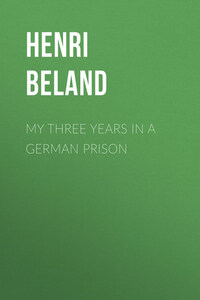It was the 26th of July, 1914. My wife and I were walking leisurely in the park of a village in the Pyrenees, the sun shedding its warm, quickening rays in the Valley of the Gave when, suddenly, a newsboy approached us carrying under his arms a bundle of newspapers, and crying at the top of his voice, “War! War! It is War!”
I stopped him, asking at the same time, “What war?”
“Why, the war between Austria and Serbia. The paper will give you all the details,” he answered.
As a matter of fact, the paper he was selling, “La Liberte du Sud-Ouest,” contained the text of the now and forever famous ultimatum of Austria-Hungary to the little Balkan power.
The following day, at each important railway station we passed through on our way from Bordeaux to Paris, fresh editions of the French newspapers were brought to us, each containing strong, passionate comments on the diplomatic document which threatened the peace of Europe.
In the compartment of the train where we sat the conversation was animated. That Austria was at her perfidious tricks again was the consensus of opinion generally, although the best informed ones realized that it was ambitious and treacherous Germany which inspired Austria.
We stayed a few days in Paris on our way to Antwerp. Our impression of the French capital was that, even in that diplomatic torment, the city maintained a remarkable calmness. Of course, the sole topic of discussion in the cafés, on the boulevards, in the busses and the trams was the war, but there appeared to be a complete absence of that agitation which one who has visited Paris in normal times is well aware of.
I wished to send a telegram to Belgium, but was told that all lines had been taken over by the military authorities and that my message would probably be delayed a full day or more.
On the day of my leaving Paris for Antwerp I paid a visit to the Honorable Mr. Roy, Canadian High Commissioner, and asked him what he thought of the diplomatic situation. The eminent representative of Canada expressed grave anxiety, and said he feared a declaration of war between Germany and France was imminent.
At noon the same day my wife and I started for Antwerp on the Paris-Amsterdam fast express, passing through the territory of France and Belgium which within two months was to be the scene of horrors of war that have appalled the whole world. Far were we then from thinking that those cities–actual beehives of industry–and those fine farm lands, bearing fast-ripening crops and inviting the harvester’s scythe, would be within a few weeks devastated, pillaged, plundered and burned.
The agitation was great in Antwerp; the city yeomanry had been called to arms, and on this same evening, July 30, rumors were already in circulation that Germany had sinister intentions and that she was actually preparing to violate Belgium’s neutrality.
The mere mention of such an act, which meant trampling upon all international laws, stirred the Belgian people to a high pitch of indignation. The same evening we arrived at the village of Capellen, situated six miles north of Antwerp, on the Antwerp-Rotterdam highway.
On the following day, Saturday, August 1, we started for Brussels, en route to Ostend, and thence to Middelkerke, a charming seaside resort, where we were to spend the rest of the summer season. Middelkerke is situated half way between Ostend and Nieuport, recently evacuated by the Germans, and which has been the division line between the German and the Belgian armies for four years.
An incident of which I have a personal knowledge shows that Germany intended to violate Belgium’s neutrality from the outset of the imbroglio between Austria and Serbia. We were about to leave Brussels for Ostend and had already boarded the train when a well-known citizen of Ghent and his wife entered the already crowded compartment where we sat. They apologized for their intrusion, but in such pressing times one had to travel as best one could, and it was with sincerity that we accepted the apologies of the couple for intruding in such a way in the compartment allotted to us.
After exchanging cards, the gentleman related that the day before he and his wife were returning in an automobile from a tour in Germany when, near the frontier, they were stopped by German military. Their papers were examined, but notwithstanding their credentials as Belgian subjects, and proof that they were on their way home from a holiday trip, their automobile was seized and they were compelled to stay the night in a hotel. The room assigned to them was on the ground floor where they were unable to sleep owing to the tramp, tramp, tramp of German regiments marching to the German border. The troops were singing “Deutschland über Alles,” and the rumble of the drums never ceased from early evening until the following morning. This happened in a village situated within two or three kilometers from the Belgian frontier, on the night of July 31. Germany’s ultimatum to Belgium was not presented until two days later.








